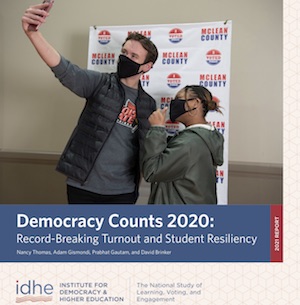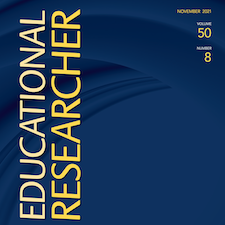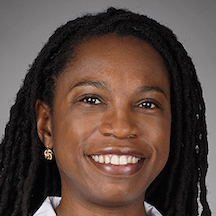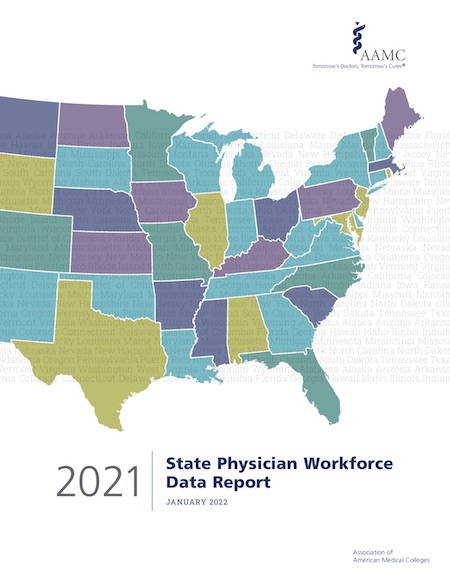Comparing College Student Voter Participation Rates by Race and Gender
Nationwide, 66 percent of college students cast ballots in 2020, up from 52 percent in 2016. The survey found that 63 percent of all African American college students voted in 2020. In 2016, 53 percent of all Black college students voted.
Study Finds Persisting Racial Inequality in Access to Financial Services and Credit
The Brookings Institution study finds that there are stark contrasts in access to credit for African Americans: Interest rates on business loans, bank branch density, local banking concentration in the residential mortgage market, and the growth of local businesses are markedly different in majority Black neighborhoods.
Teenagers Largely Reflect Their Parents Views on Race
Researchers found that on some issues, partisan gaps among teens were larger — though not much larger — than those among adults. This larger gap is mainly driven by teenagers from Republican families having on average more right-leaning perceptions than their parents.
Are Admissions Lotteries a Good Way to Boost Racial Diversity in Higher Education Enrollments?
The current research found that using minimum lottery thresholds for GPA and standardized tests, both together and separately, the participation of students of color and low-income students dropped precipitously, in some models to levels below 2 percent of the entering class.
Are Black Athletes Returning to Play Too Soon After Suffering a Concussion?
A new study led by researchers at the Vanderbilt Sports Concussion Center and the University of Alabama found that for athletes competing in middle school, high school, and college sports, Black athletes reported a shorter time between injury and symptom resolution and spent fewer days out of school than their White peers.
Study Finds Everyday Exposure to Police May Be Harmful to the Mental Health of...
“While there has been growing attention toward the deaths of Black Americans by police, less focus is being given to the everyday, routine encounters that Black youth have with police,” said lead author Monique Jindal.
No Progress Over the Past Decade in Diversifying Surgical Faculty at U.S. Medical Schools
Researchers used data from 140 U.S. medical schools to assess trends from 2011 to 2020. They found that diversity was greater among medical students than among faculty. The data showed that faculty from all underrepresented groups remained unchanged at about 11 percent.
The Black Percentage of All U.S. Students Who Studied Abroad Took a Big Hit...
In 2000, just 3.5 percent of all U.S. students studying abroad were African Americans. By the 2018-19 academic years. Blacks made up 6.4 percent of all U.S. students who studied abroad. But this progress was halted and reversed to some extent by the global pandemic.
Exposure to Discrimination Can Have Serious Negative Effects on the Health of Young Adults
A new study led by researchers at the University of California, Los Angeles has found the effects of discrimination may be cumulative — that the greater number of incidents of discrimination someone experiences, the more their risk for mental and behavioral problems increases.
Are Racial Issues Discussed in the Nation’s Predominantly White Classrooms?
A new study is examining how teachers are approaching the subjects of race and inequality with their students, particularly students in kindergarten to eighth grade. They found that in both urban and rural schools in the state of Minnesota, the issue of race was rarely brought up.
Students From Sub-Saharan African Nations at U.S. Colleges and Universities, 2020-21
The Institute for International Education reports that in the 2020-21 academic year, there were 39,061 students from sub-Saharan Africa enrolled at colleges and universities in the United States. This was down by 6.3 percent. But overall international student enrollment was down by 15 percent.
New Reports Shows How HBCUs Are a Major Contributor to Social Mobility for African...
On average and across institution type, when it comes to mobility rates HBCUs outperform all other categories of educational institutions and are double the national rate. HBCUs are the primary postsecondary driver for moving Black Americans from poverty to the middle class.
Racial Disparities in Assignments of Less Invasive Prostate Cancer Screening Tests
The study found that Black men were at least 23.6 percent less likely than their White counterparts to receive an MRI exam following a prostate-specific antigen blood test. Prostate MRIs are increasingly being used to reduce the need for invasive biopsies.
How Food Insecurity Impacted Black Students’ Persistence Rates During the Pandemic
For Black students who were enrolled in the fall of 2020, those that were food secure had a 85.7 percent persistence rate for the spring 2021 semester. For those who were food insecure in the fall of 2020, only 76.5 percent returned for the spring 2021 semester.
The Pandemic Caused a Huge Drop in U.S. Students Studying Abroad in Africa
Of all U.S. students studying abroad in the 2019-20 academic year, 5,444 attended universities in sub-Saharan Africa. Sub-Saharan African nations sent seven times as many students to American universities as America sent to sub-Saharan African universities.
An Urgent Need to Focus on Retention Programs for African Americans in Higher Education
In 2020, there were 711,000 African American first-year students at undergraduate colleges and universities. That same year, there were only 220,000 Black students in their fourth year of undergraduate study.
Racial Differences in School Enrollments and High School Graduation Rates
In October 2020, were nearly 3 million African American adults over the age of 18 who were not high school graduates. There were more than 900,000 African Americans over the age of 65 who had not graduated from high school. They made up about one sixth of all African Americans over the age of 65.
Doctoral Degrees for African Americans Hold Steady Despite the Pandemic
Universities in the United States conferred 55,283 doctorates in 2020, down just slightly from 2019. Of these, 3,095 were earned by Black students, up slightly from the previous year. But more than one fifth of all doctorates earned by Black students at U.S. universities went to foreign students.
Georgia State University Scholar Looks at Factors Contributing to Successful Black Marriages
Much has been written about the disintegration of the traditional family structure in the African American community and the struggles of single parents in raising their children. But a new study led by Antonius Skipper, an assistant professor of gerontology at Georgia State University, focuses on factors that lead to successful Black marriages.
Multiple Barriers Remain in Efforts to Level the Field in the College Admissions Process
A new study by the Art & Science Group finds that despite the fact that many barriers to admission to college have been removed, Black students are still at a distinct disadvantage in navigating the admissions process compared to their White peers.
Huge Racial Disparities Among Medical Residents in Specific Fields
A new report from the Association of American Medical College shows there were slightly more than 7,000 Black or African American medical residents in the 2020-21 year. They made up 5.8 percent of all medical residents. This is less than half of what would be called for if racial parity were to prevail. Many fields had no Black residents at all.
Research Doctoral Degrees Awarded by Historically Black Universities in 2020
Data for the annual Survey of Earned Doctorates from the National Science Foundation shows that 482 doctorates were awarded by historically Black colleges and universities in 2020. Thus, HBCUs conferred just under 0.9 percent of all doctoral degrees awarded in the United States in 2020.
Number of Work-Related Fatalities for African Americans Dropped in 2020
Before the pandemic, the number of African American deaths due to injuries suffered on the job had been increasing. In 2015, 495 African Americans died as a result of work-related injuries. This had climbed to 634 in 2019, an increase of 28 percent. In 2020, the number dropped to 541.
Academic Fields Where No African Americans Earned Doctorates in 2020
African Americans earned just 2.1 percent of all doctorates awarded to U.S. citizens and permanent residents in the physical and earth sciences and 3.2 percent of all doctorates in mathematics and computer science. There were 17 fields where no African Americans earned doctorates.
Study Finds Teachers Offer Lower Quality Instruction to Predominantly Black Classes
A new study by researchers at New York University and the University of North Carolina at Chapel Hill finds find that classes taught by the same teacher receive a lower quality of teaching when they comprise higher percentages of Black and Latinx students.
Research Finds Continuing Racial Disparities in Exposure to Air Pollutants
A new study led by researchers at the University of Washington finds that while overall pollutant concentrations have decreased since 1990, people of color are still more likely to be exposed to six pollutants than White people, regardless of income level, across the continental United States.
African Americans Are the Most Likely to Be Impacted by the Lack of Adequate...
About five million U.S. households had a child who was unable to attend childcare as a result of it being closed, unavailable, unaffordable, or because parents were concerned about the child’s safety during the pandemic. Black families were impacted more than any other racial or ethnic group, according to a University of New Hampshire study.
Vast Racial Differences in the Financing of Doctoral Education
Only 19.4 percent of all African Americans who earned doctorates in 2020 had no education-related debt when they earned their terminal degree. For Whites, 50.2 percent had no education-related debt.
Racial Differences in the Age of Doctoral Degree Recipients in the United States
On average, Whites who earned doctorates in 2020 were 31.6 years old when they received their doctoral degrees. For African Americans, the average age was 36.6. On average, Whites took 8.8 years to earn their degree from the time they graduated from college, compared to 12.1 years for African Americans.
Study Finds Americans Are Less Likely to Respond to Emails If the Sender is...
The researchers sent emails to a random list of 250,000 Americans. When the sender had a White-sounding name, they were 15 percent more likely to receive a response than emails where the sender had a Black-sounding name.
Black or African American? Labels Can Impact People’s Perceptions of Ideology
A new study led by researchers at Emory University in Atlanta, the University of Southern California, and Columbia Business School shows that White Americans associate the label “Blacks” with being targets of racial bias more than the label “African Americans.”
Study Finds Black Students Are Underrepresented in Dual Enrollment Programs
Dual enrollment is an opportunity that allows high school students to take college courses for credit and can reduce the time and money needed to obtain a degree. But a study by The Education Trust-West finds that Black students are unlikely to be taking advantage of such programs.
The Teacher Workforce Is Becoming More Diverse But Is Not Keeping Up With Student...
At the high school level, 52 percent of the students were White but 78.2 percent of all teachers were White. Blacks were 14.3 percent of all high school students but Blacks were just 7.8 percent of all high school teachers.
Comparing the Black Population to the Number of Black Doctors by State
Blacks are 10 percent or more of all practicing physicians in the District of Columbia, Georgia, Mississippi, and Maryland. Georgia fares far better than most southern states. Blacks make up 31 percent of the population and 16.3 percent of the doctors.
Indiana University Study Finds Lack of Diversity in Images in Sex Education Textbooks
Researchers in the Center for Sexual Health Promotion at the Indiana University School of Public Health analyzed skin tone and skin color diversity in 182 anatomical diagrams and images from eight contemporary, college-level human sexuality textbooks. They found that only 1.1 percent of all images showed dark skin tones.
The Persisting Racial Gap in Homeownership and Mortgage Approval Rates
A new report from Zillow, the online real estate broker, finds that Black applicants are denied a mortgage at a rate 84 percent higher than White applicants, an increase of 10 percentage points since 2019. Black homeownership is at 44 percent, far below the peak of 49.7 percent set in 2004.










































